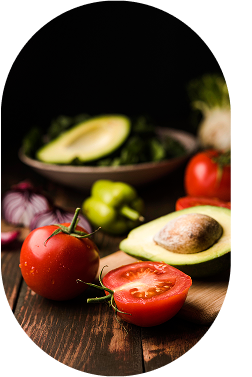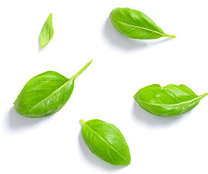Fresh Today, Flavorful Tomorrow: How to Keep Herbs from Going to Waste

Fresh aromatic herbs — thyme, basil, parsley, mint, and rosemary — are some of my favorite herbs to cook with, preserve, and enjoy year-round.
Whether you’re harvesting herbs from your garden or buying them in bulk from stores like Restaurant Depot, fresh herbs are one of the quickest ingredients to spoil. While buying larger bunches can be more cost-effective, it also means you need a solid plan—especially for delicate herbs like basil and mint that can wilt within days.
As someone who uses herbs generously in Ghanaian tomato stew, homemade soups, and quick stir-fries, I’ve learned how to make every leaf count. This week, I’ll Walk you through how I preserve herbs like basil, parsley, rosemary, and mint—so they stay useful long after purchase.
🎃 Smart Herb Strategies:
- Wash your herbs as soon as you get home to remove dirt and reduce bacterial spoilage.
- Use fresh herbs in big-batch freezer meals like:
- Homemade tomato stew
- Pasta sauces
- Soups or broths
- Freeze the rest in different forms:
- Whole leaves
- Roughly chopped
- Finely chopped in oil or water using ice cube trays
Even if herbs like basil or mint lose a bit of color when frozen, they still add great flavor to soups, stir-fries, smoothies, and grain bowls.
🌿 Not All Herbs Behave the Same
Some herbs are more delicate than others.
Soft herbs (like basil, mint, and cilantro) tend to discolor when frozen and are best preserved chopped or blended.
Hardy herbs (like rosemary and thyme) are far more forgiving and ideal for drying or infusing.
🩺 How to Preserve Hardy Herbs (Rosemary & Thyme)
These herbs retain flavor beautifully and can be stored long-term:
- Hang to dry in bundles or dehydrate in the oven at low heat
- Store whole sprigs or crumble into jars
- Use in roasted meats, vegetables, or to season stews
Try these extras too:
- Freeze as seasoning cubes blended with onion, garlic, or ginger
- Add fresh sprigs to homemade pickles for a flavor kick
- DIY Herb Salt Tip: Make your own herb salt blends using dried rosemary, thyme, and sea salt. Simply combine and pulse in a spice grinder or clean coffee blender until finely mixed. Store in an airtight jar and use to season roasted vegetables, meats, or even homemade fries!
🧨 Freezing Tips:
- Wash herbs thoroughly before freezing.
- Chop or blend and portion into cubes (with oil or water)
- Label everything clearly with the date and herb type
- Use older batches first (FIFO method)
- Store in small sizes you’ll actually use (1–2 tbsp portions)
- Freezing Reminder:
Dry herbs thoroughly before freezing to prevent freezer burn. For best results, flash-freeze them flat on a tray first—then transfer to a labeled container or freezer bag. This keeps them from clumping and makes it easier to use only what you need! - When using frozen herbs, return the rest to the freezer immediately. They begin to defrost within seconds and can lose flavor, texture, and safety if left out too long.
💡 Final Thoughts
Fresh herbs are best used right away—but life gets busy. When you can’t use them all, a little prep now will save you money, reduce waste, and keep your cooking flavorful down the road.
With a labeled stash in your freezer or pantry, you’re always just a sprinkle (or cube) away from something delicious.
Stay tuned for next week in the Preserve & Stretch Series!







.png)
.png)

.png)
.png)